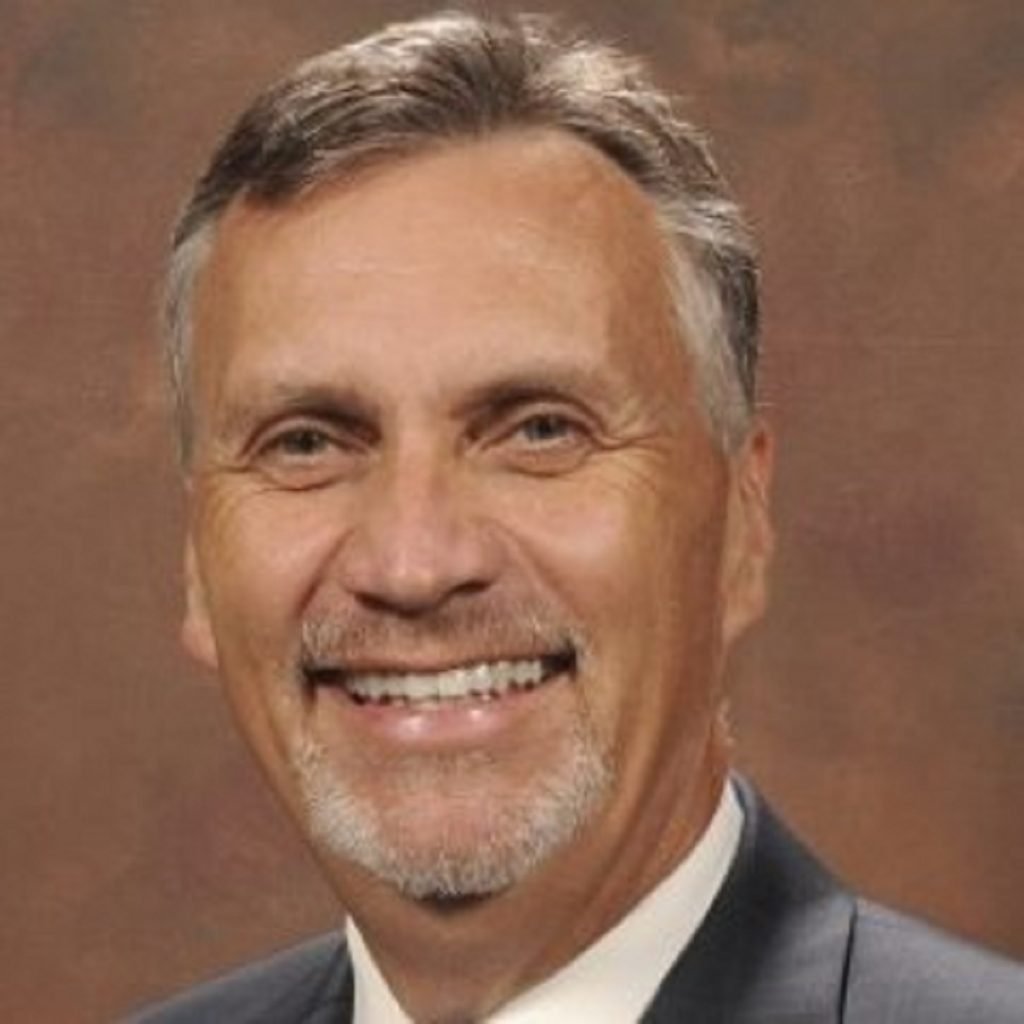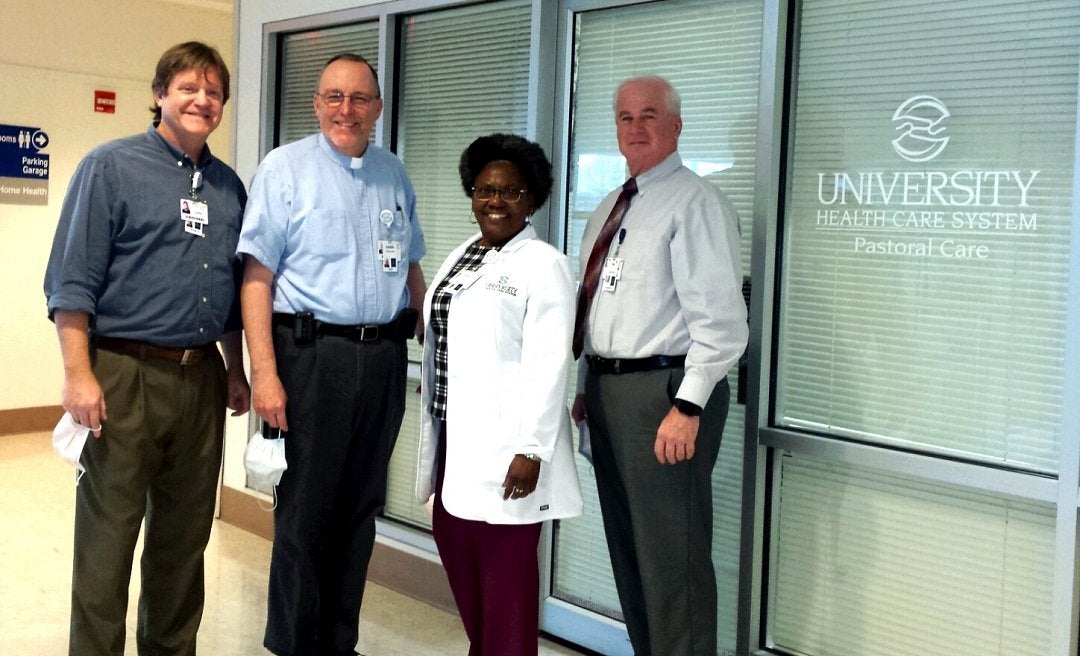Providing care to caregivers is a major role for hospital chaplains. During the pandemic, frontline hospital staff have been faced with new challenges, and the chaplains have worked to meet as many of the needs as they could.
“Life has been turned upside down for them,” said the Rev. Jeff Flowers, director of spiritual care at Augusta University Health.
He’s seen health care workers faced with a challenge they can’t put into words, and no one except their colleagues can understand what they’re going through. There’s no separation between their profession and home, he said.

At the hospital, they are faced with caring for COVID-19 patients and all that entails, but when they leave, they don’t leave COVID-19 behind. At home, it wears a different face. Maybe their kids are at home because they aren’t in school; maybe their spouse is working from home. It’s on the news; it’s in social media; it’s everywhere they turn, he said.
“You can only talk about it at work. You have no energy, no word to describe,” said Flowers, who added he can empathize with them because his father died from COVID-19 complications.
Not being able to talk about it with loved ones adds a strain to those relationships causing more problems, he said.
The Rev. Daniel Wager, manager of pastoral care with University Health Care System, summed up what many of the hospital’s staff has encountered over the past year.
A nurse or respiratory therapist sees a patient come in on a Monday. The patient has trouble breathing. Over the next two weeks, they get attached to the patient whose condition worsens, and they get to know the patient’s family.
It’s a steady decline until the patient needs to be intubated, and finally the patient dies.
It’s a scenario that has played out many times over the past year, he said.
“You can’t help but be impacted,” he said.
Both hospitals have implemented ways to assist not just the frontline hospital staff, but environmental services employees and administrative employees. These hospital workers have had their own stresses.
At Augusta University Health, chaplains have held a series of listening sessions, where hospital employees could come together to just talk without any of the management involved.
[adrotate banner=”19″]
There are dedicated, safe places for hospital staff to get away from the stresses for moments to breathe and practice their own faith without prying eyes.
At University Hospital, Wager said there have been some group sessions, but the chaplains do a lot of one-on-one interaction with staff.
Sometimes that results in a three-minute exchange of “how are you?” to popping into someone’s office and having them say “Chaplain, would you close the door?” which leads to a 40-minute heart-to-heart, he said.
The hard part for the chaplains is that in both hospitals, they have small teams of paid and volunteer staff. They can only minister to so many people at a time.
“As a pastor, I want to be there for everyone,” Wager said.
Charmain Z. Brackett is the Features Editor for The Augusta Press. Reach her at charmain@theaugustapress.com
[adrotate banner=”35″]











